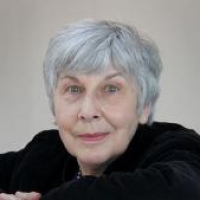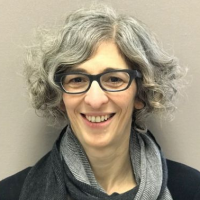Lost Souls: Soviet Displaced Persons and the Birth of the Cold War
When World War II ended, about one million people whom the Soviet Union claimed as its citizens were outside the borders of the USSR, mostly in the Western-occupied zones of Germany and Austria. These “displaced persons,” or DPs—Russians, prewar Soviet citizens, and people from West Ukraine and the Baltic states forcibly incorporated into the Soviet Union in 1939—refused to repatriate to the Soviet Union despite its demands. Thus began one of the first big conflicts of the Cold War. In Lost Souls, Sheila Fitzpatrick draws on new archival research, including Soviet interviews with hundreds of DPs, to offer a vivid account of this crisis, from the competitive maneuverings of politicians and diplomats to the everyday lives of DPs.
American enthusiasm for funding the refugee organizations taking care of DPs quickly waned after the war. It was only after DPs were redefined—from “victims of war and Nazism” to “victims of Communism”—in 1947 that a solution was found: the United States would pay for the mass resettlement of DPs in America, Australia, and other countries outside Europe. The Soviet Union protested this “theft” of its citizens. But it was a coup for the United States. The choice of DPs to live a free life in the West, and the West’s welcome of them, became an important theme in America’s Cold War propaganda battle with the Soviet Union.
A compelling story of the early Cold War, Lost Souls is also a rare chronicle of a refugee crisis that was solved.
Sheila Fitzpatrick is the author of many books, including On Stalin’s Team: The Years of Living Dangerously in Soviet Politics (Princeton), The Shortest History of the Soviet Union, and The Russian Revolution. She is professor of history at the Institute of Humanities and Social Science at the Australian Catholic University and Distinguished Service Professor Emerita at the University of Chicago.
Speaker

Bernadotte E. Schmitt Distinguished Service Professor Emerita of Russian History and the College, University of Chicago
Panelists


Hosted By

History and Public Policy Program
A leader in making key foreign policy records accessible and fostering informed scholarship, analysis, and discussion on international affairs, past and present. Read more


Cold War International History Project
The Cold War International History Project supports the full and prompt release of historical materials by governments on all sides of the Cold War. Read more


Kennan Institute
After more than 50 years as a vital part of the Wilson Center legacy, the Kennan Institute has become an independent think tank. You can find the current website for the Kennan Institute at kennaninstitute.org. Please look for future announcements about partnership activities between the Wilson Center and the Kennan Institute at Wilson Center Press Room. The Kennan Institute is the premier US center for advanced research on Eurasia and the oldest and largest regional program at the Woodrow Wilson International Center for Scholars. The Kennan Institute is committed to improving American understanding of Russia, Ukraine, Central Asia, the South Caucasus, and the surrounding region through research and exchange. Read more
